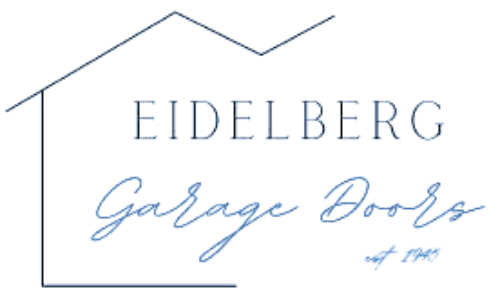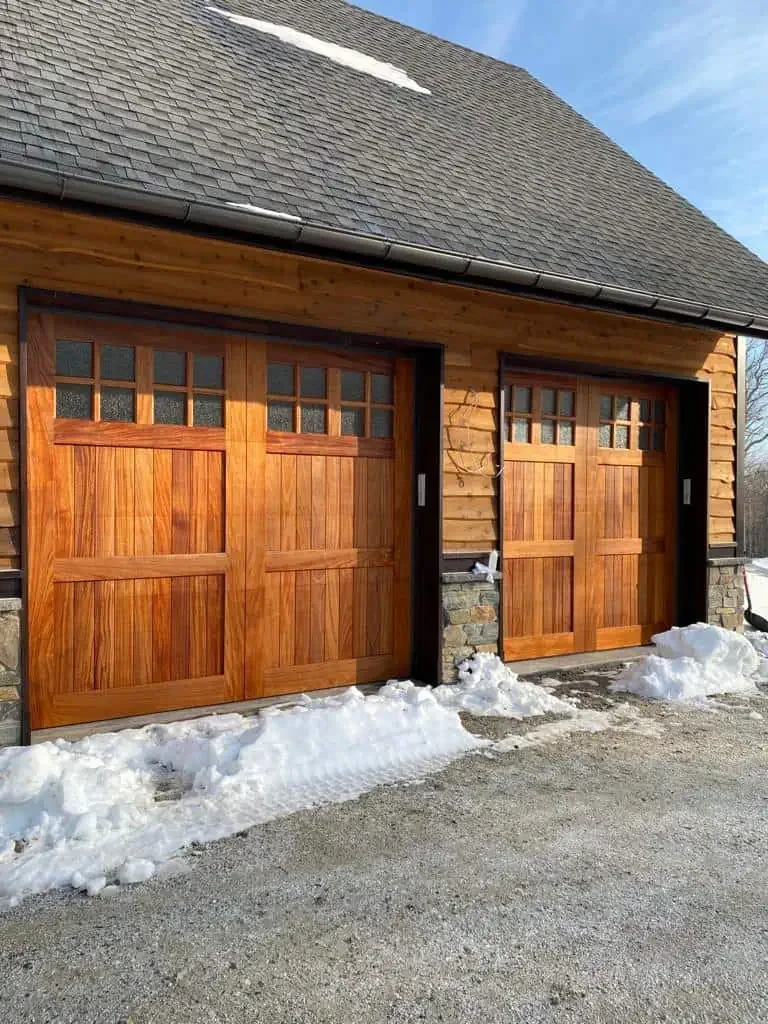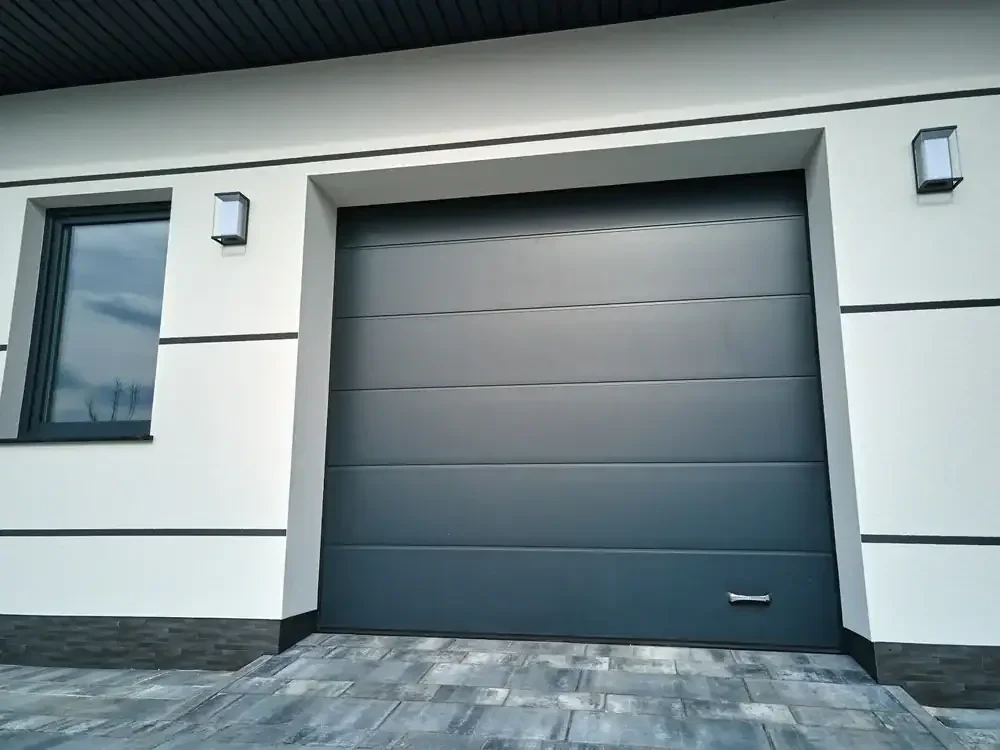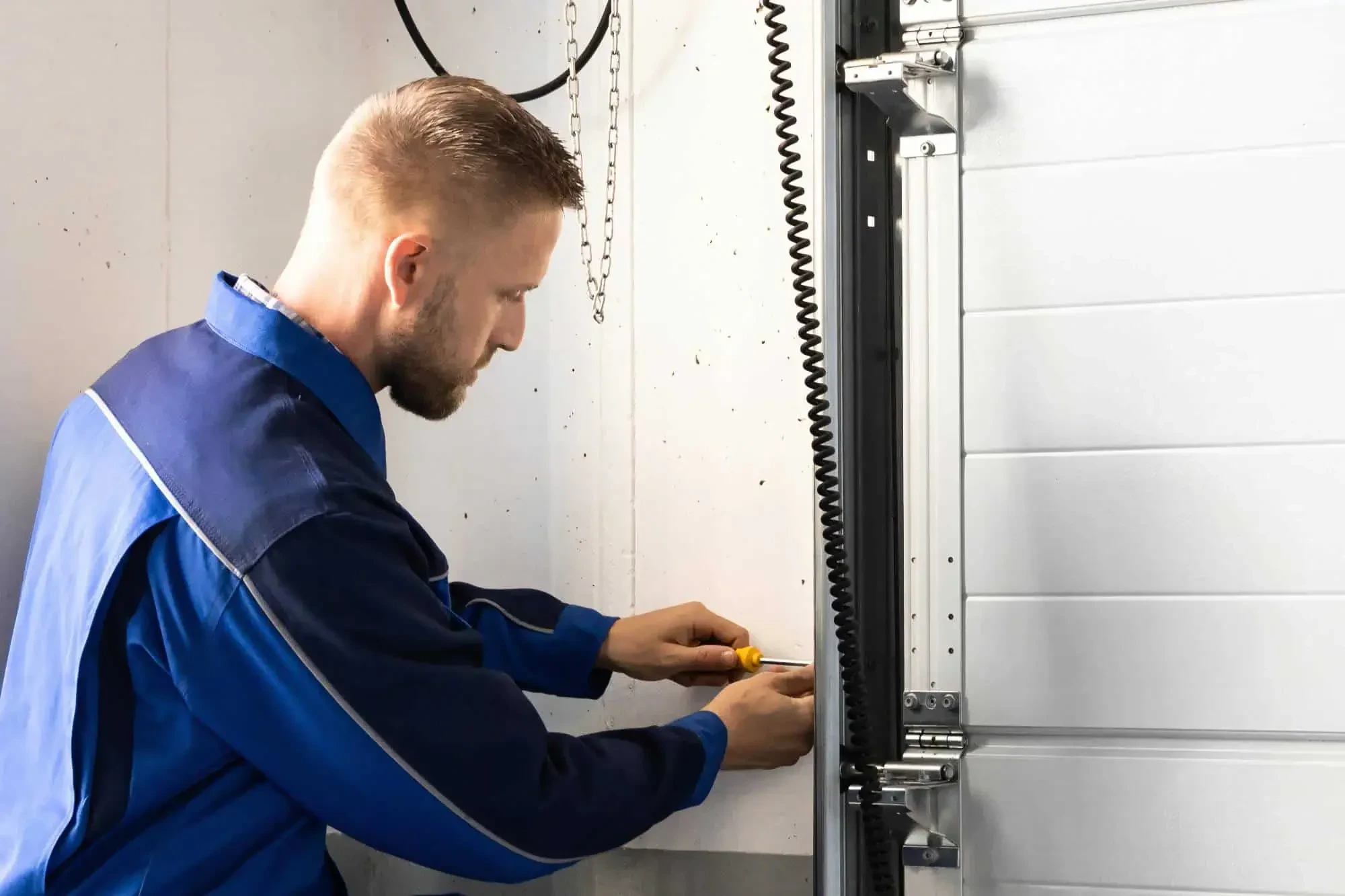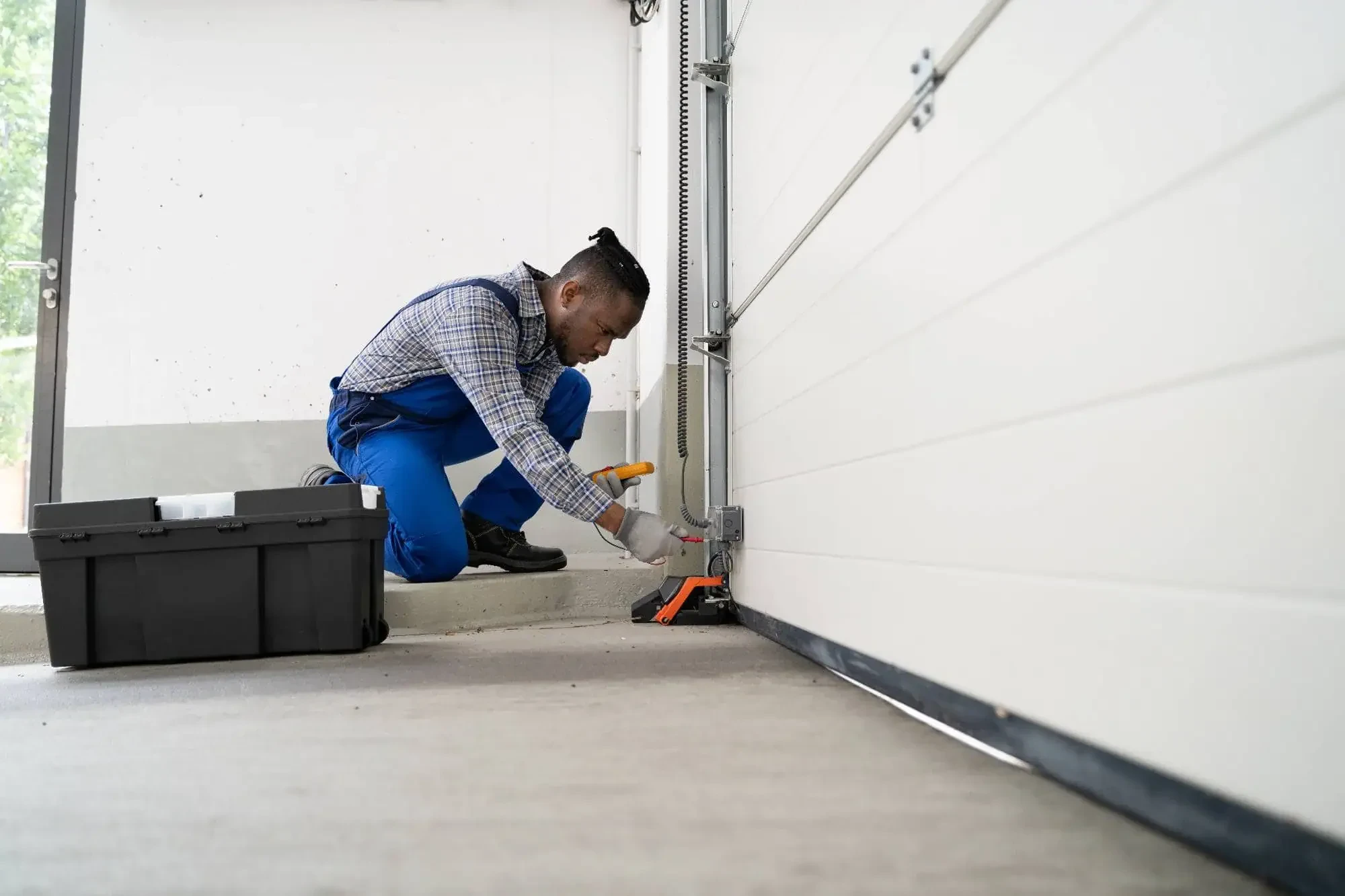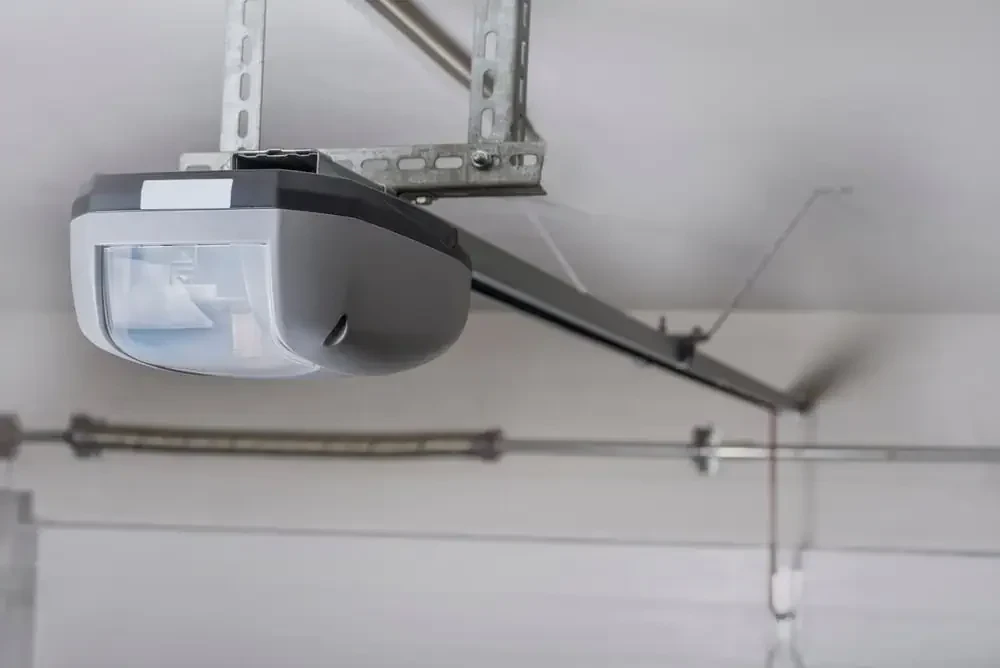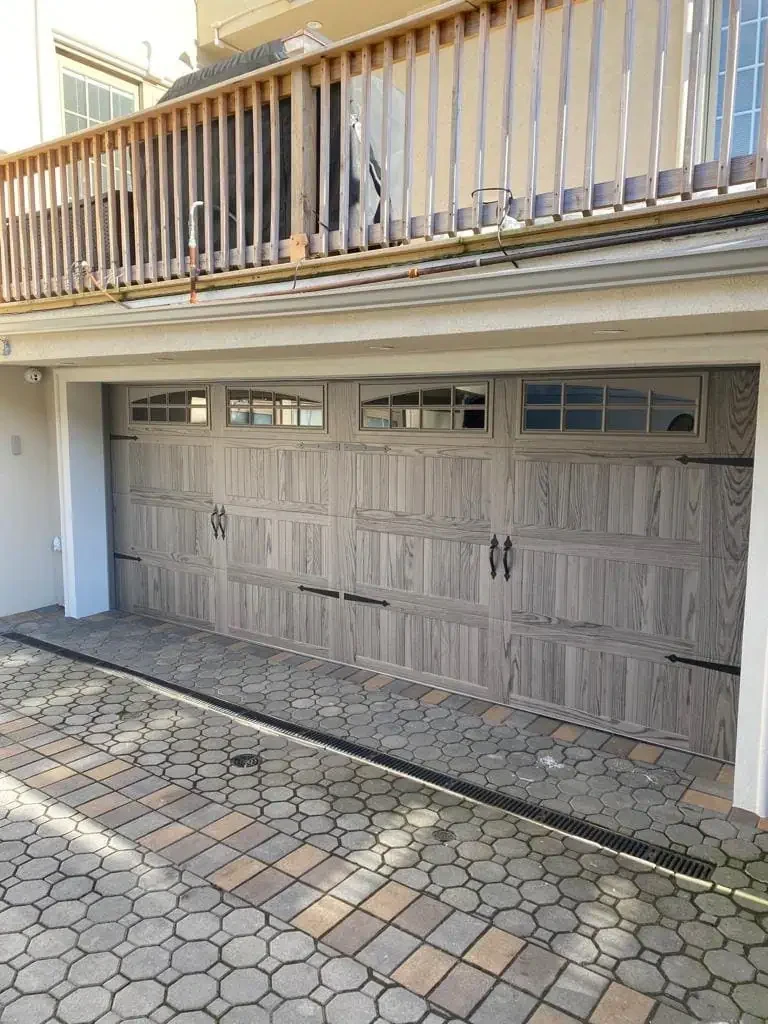Summary:
Critical Warning Signs That Require Immediate Professional Garage Door Repair
Some garage door problems aren’t just inconvenient—they’re dangerous. Springs under tension can cause serious injury if they snap. Cables can whip when they break. A door that falls unexpectedly can damage your car or hurt someone underneath.
You need professional garage door repair immediately if your door won’t open or close, makes grinding or scraping noises, or if you see broken springs or frayed cables. Don’t attempt DIY repairs on these issues. The risk isn’t worth the savings.
Garage Door Spring Problems: Never a DIY Job
Garage door springs are under extreme tension—enough to lift a 200-pound door. When they break, they can cause serious injury or property damage. You’ll know you have a spring problem if your door won’t open, opens only partway, or feels extremely heavy when you try to lift it manually.
Torsion springs, mounted above your door, are especially dangerous. These springs are wound tight and store enormous amounts of energy. When they break, they can unwind violently. Extension springs, which run along the sides of your door, can snap and whip across your garage.
We have the right tools and training to safely replace springs. We know how to properly wind torsion springs and install safety cables on extension springs. This isn’t about skill level—it’s about having the right equipment and understanding the safety protocols.
In Nassau County’s climate, springs typically last 7-10 years with normal use. Cold winters can make metal more brittle, leading to earlier failure. If your springs are approaching this age, have them inspected before they break and leave you stranded.
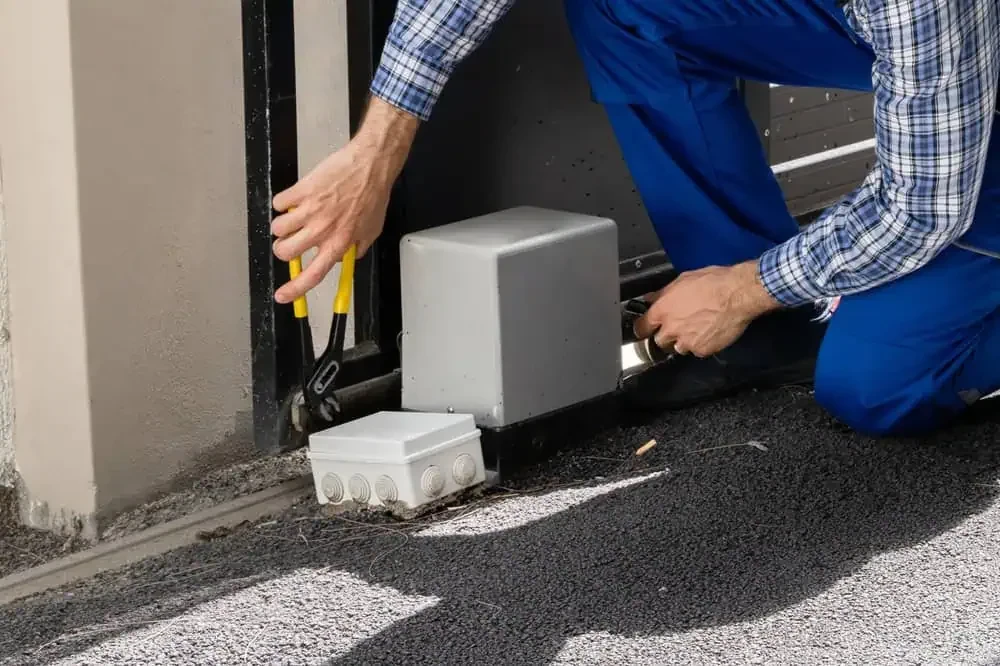
When Cable and Track Issues Need Professional Attention
Your garage door’s cables and tracks work together to guide the door smoothly up and down. When cables fray or snap, your door can become unbalanced or fall unexpectedly. When tracks bend or come out of alignment, your door can bind, jump off track, or operate roughly.
Cable problems often start small—you might notice a few frayed strands or hear a slight grinding noise. But cables can fail suddenly, especially if they’re old or if your door has been operating with broken springs. A door with one broken cable puts extra stress on the remaining cable, increasing the chance of complete failure.
Track problems usually develop gradually. Your door might start operating roughly, making scraping noises, or binding in certain positions. Sometimes tracks can be knocked out of alignment by impact—maybe you backed into the door or something fell against the track.
Professional repair is essential for cable and track issues because the door needs to be properly supported during the work. We have the tools to safely secure the door while replacing cables or realigning tracks. We can also identify underlying problems that might have caused the cable or track failure in the first place.
DIY track adjustments might seem simple, but improper alignment can cause premature wear on rollers, springs, and your opener. What looks like a minor adjustment can create bigger problems down the road.
Essential Garage Door Maintenance to Prevent Costly Repairs
Regular maintenance prevents most garage door emergencies and extends the life of your system. The key is knowing what you can safely do yourself and what requires professional attention. Simple monthly checks can catch problems early, when they’re still inexpensive to fix.
Most maintenance tasks are straightforward: visual inspections, listening for unusual noises, and basic cleaning. But the payoff is huge—catching problems early can save you hundreds in emergency repairs and prevent the inconvenience of a door that won’t work when you need it most.
Monthly Maintenance Tasks Every Nassau County Homeowner Should Do
Start with a visual inspection of your entire garage door system. Look at the springs, cables, rollers, and tracks. Check for frayed cables, worn rollers, bent tracks, or loose hardware. Listen to your door operate—it should run smoothly and quietly. Grinding, scraping, or squealing noises indicate problems that need attention.
Test your door’s balance by disconnecting the opener and manually lifting the door halfway. It should stay in place without your support. If it falls or springs up, your springs need adjustment—a job for professionals. An unbalanced door puts extra strain on your opener and can lead to premature failure.
Check your garage door opener’s safety features monthly. Test the auto-reverse by placing a 2×4 on the ground where the door would close. The door should reverse when it contacts the board. Test the photoelectric sensors by breaking the beam with your hand as the door closes—it should reverse immediately.
Keep your tracks clean and free of debris. Wipe them down with a damp cloth and remove any buildup of dirt or grease. Clean tracks help your door operate smoothly and prevent premature wear on rollers.
Lubricate moving parts every few months, but use the right products. Spray white lithium grease on springs, hinges, and rollers. Avoid using WD-40 or other penetrating oils—they attract dirt and can cause more problems than they solve.
Seasonal Maintenance Tips for Nassau County's Climate
Nassau County’s weather puts specific demands on garage door systems. Cold winters can make metal components brittle and affect your opener’s performance. Humid summers can cause rust and corrosion. Salt air from the nearby ocean can accelerate corrosion on metal components.
Before winter hits, check your door’s weather stripping. Cold air infiltration not only wastes energy but can cause ice buildup that prevents your door from sealing properly. Replace worn weather stripping before the first freeze. Also check that your door closes completely—even a small gap can let in cold air and moisture.
Cold weather affects garage door opener performance. If your opener struggles in winter, check that you’re using the right type of lubricant on moving parts. Some lubricants thicken in cold weather, making your opener work harder. Your opener’s manual will specify the right products for your climate.
Spring is the perfect time for a thorough inspection after winter’s wear and tear. Look for rust spots, especially on springs and hardware. Small rust spots can be cleaned and treated, but extensive rust indicates components that need replacement.
Summer’s humidity can cause wooden doors to swell and metal components to rust. Ensure your garage has adequate ventilation to reduce moisture buildup. If you notice rust forming on springs or hardware, address it quickly before it weakens these critical components.
Fall preparation includes clearing leaves and debris from tracks and sensors. Check that your garage door sensors are clean and properly aligned—autumn leaves and debris can block the sensor beam and prevent your door from closing properly.
Protecting Your Investment with Smart Maintenance and Professional Service
Your garage door system is a significant investment that affects your daily routine, home security, and property value. Knowing when to handle maintenance yourself and when to call professionals keeps your system running safely and efficiently while avoiding costly emergency repairs.
Remember that some repairs—especially anything involving springs, cables, or major adjustments—should always be left to professionals. The safety risks and potential for additional damage make DIY attempts on these components a poor choice.
When you need professional garage door repair in Nassau County, we at Eidelberg Garage Doors combine local expertise with honest service to keep your door operating safely and reliably for years to come.
